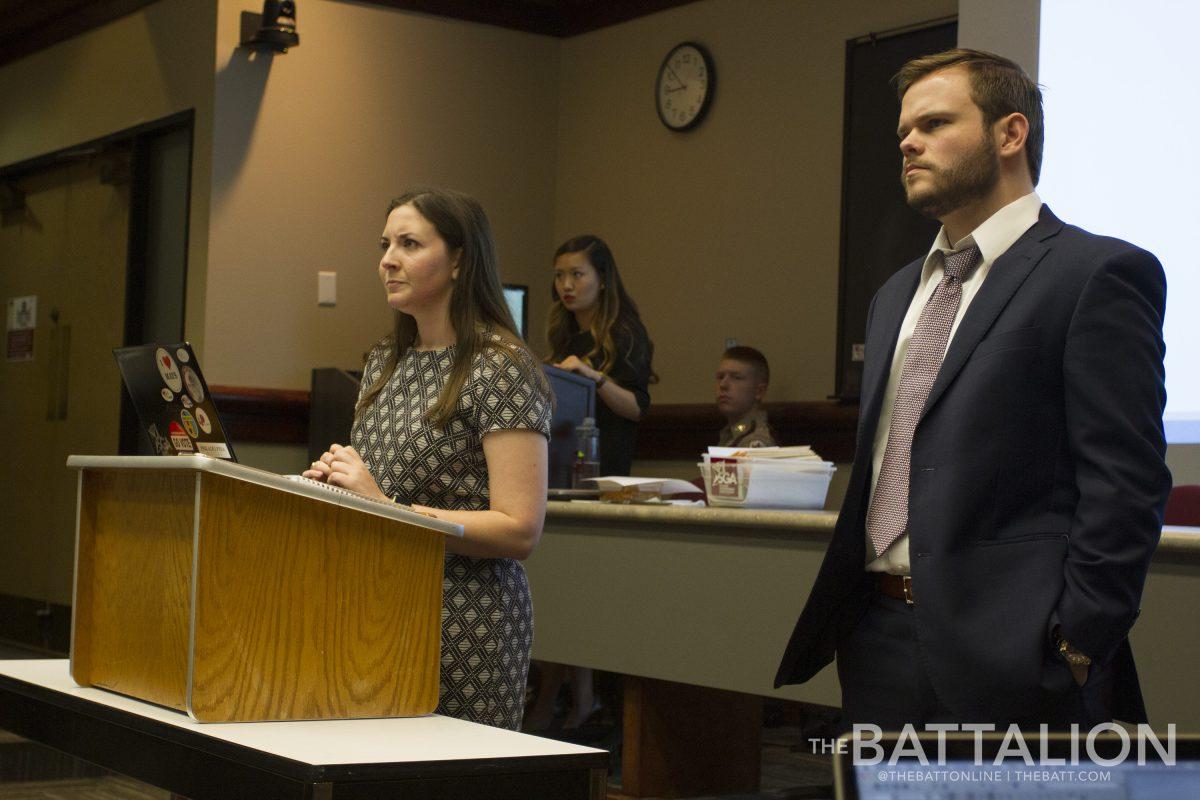Senators struck down a bill that would have adjusted student government’s approach to student fee considerations following a period of debate at Wednesday night’s Student Senate meeting.
The Removal of the SGA Student Opinion on Fees Act was part of a series of bills presented by Operations Executive Vice President Rachel Keathley and Senate Rules and Regulations Chair Ben Johnson to adjust and update the student government code. Under the current code, the Student Government Association (SGA) is required to oppose any increase to student fees or tuition unless an official statement of support or neutrality is passed by the Student Senate and signed by the Student Body President. With their bill, Keathley and Johnson looked to remove this section and end the default opposition policy.
The obligation to outright oppose any fee proposal not acted on by Student Senate can leave leaders like Student Body President Bobby Brooks in a tough situation when meeting with university departments and administrators, Keathley said.
“If I’m sitting in a meeting and someone were to suggest a student fee to me, then I’m automatically required to oppose it,” Keathley said. “I can’t even have a conversation because that default opposition policy prevents me from doing anything.”
Students opposing the bill expressed concerns that diverting from the default opposition policy could give a small group of student leaders the power to express approval for fee increases without consulting Student Senate.
“This bill allows the executive cabinet, the executive branch of government, to go around the legislative branch, bypass the legislature to take a stance and advocate for student fee increases,” said Brandon Gindt, vice president of legislative relations. “Separation of power matters. Check and balances matter.”
However, Keathley said if the default opposition were done away with, the authority to express student government’s official position on student fee increases would still rest squarely within the senate.
“Right now, me as an [executive cabinet] member, I can go sit in a conversation with administration, but I can’t advocate on behalf of SGA without some official mandate from senate,” Keathley said. “You guys are still able to have that, you still want that power. This is in no way taking that away.”
Defending the preservation of the policy, Legislative Affairs Chair Katina Economides said the default opposition helps ensure that Student Senate’s role in student fee discussions is not diminished, adding that student leaders can still have conversations about fees as long as they are up front about the policy.
“We’re the elected members, we’re the voice of the student body and no member of SGA should be allowed to bypass the voice of the student body to express their support for student fees,” Economides said. “[Other student government leaders] can still have that conversation, they can literally walk in and say ‘hey, great fee idea, bring it to senate, they’ll write a bill or a resolution.’ It’s that easy.”
Looking to establish a more comprehensive process for student government to analyze and discuss potential fee increases, Keathley and Johnson also presented a bill which aims to reestablish a student fees review committee consisting of representatives from all three SGA branches.
“Right now, it is intended to basically set forth a committee that is tasked with assessing proposals for student fees and providing recommendation on a planned action to student senate or branch leaders,” Keathley said.
The bill will be discussed by the rules and regulations committee before being presented to the Student Senate a second time.
Student Senate preserves default opposition to student fee increases
April 5, 2018
Photo by Photo by Luke Henkhaus
Rachel Keathley and Ben Johnson take questions from student senators about the Removal of the SGA Student Opinion on Fees Act.
0
Donate to The Battalion
$2065
$5000
Contributed
Our Goal
Your donation will support the student journalists of Texas A&M University - College Station. Your contribution will allow us to purchase equipment and cover our annual website hosting costs, in addition to paying freelance staffers for their work, travel costs for coverage and more!
More to Discover










